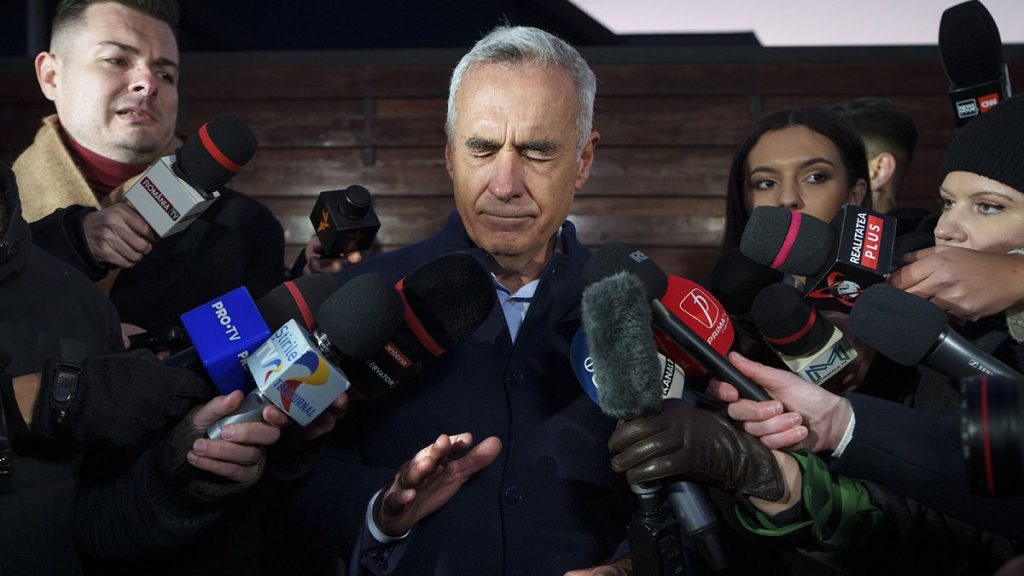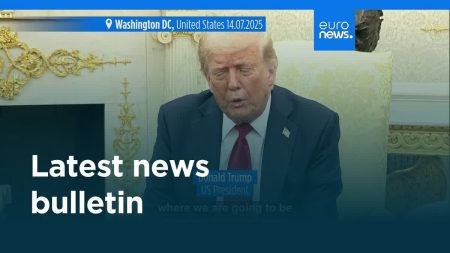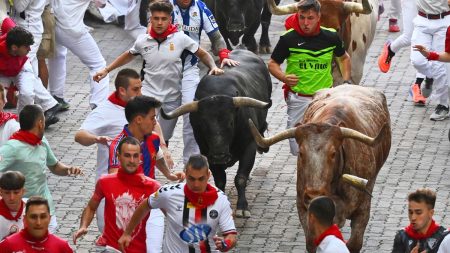The unexpected rise of Călin Georgescu as Romania’s extremist presidential candidate has sparked significant controversy, drawing attention for his surprising success in the first round of elections. Georgescu’s campaign can largely be attributed to a powerful TikTok strategy that utilized social media to influence public opinion. His victory has raised alarms in both Bucharest and Brussels due to the implications of potential foul play. Romanian authorities are now urging the European Commission to investigate TikTok for its apparent violations of the EU Digital Services Act, citing concerns over how the platform may have manipulated its algorithms in favor of this anti-EU, pro-Russian candidate, thus compromising the integrity of democratic processes.
Georgescu, often labeled the “TikTok Messiah,” has gained notoriety for his extreme views, which include denying the existence of the Ukraine war and COVID-19, and he praises Vladimir Putin while vehemently criticizing the European Union. His rhetoric echoes a broader trend of anti-EU sentiment proliferating through social media channels across Europe. The uniqueness of Georgescu’s success poses questions about the authenticity of social media interactions and whether TikTok’s booster effect on his campaign represents a deliberate manipulation of voter sentiment or a natural progression of its content algorithms. This raises serious concerns about the role of social media in shaping public opinion and its potential risks to democracy.
Responses to Georgescu’s rise have been multifaceted, with prominent figures in Romania calling into question both the security of the political landscape and the effectiveness of national intelligence agencies. Former Romanian President Traian Basescu has publicly criticized the lack of accountability for the country’s security structures, emphasizing that Georgescu’s success is more reflective of algorithm-driven content than genuine citizen engagement. This commentary highlights the fundamental challenges traditional political systems face in addressing the influence of social media on electoral outcomes, a sentiment echoed by political analysts who note the lack of substantive political debate surrounding Georgescu’s candidacy.
Many experts argue that Georgescu’s appeal lies not in the substance of his proposals but rather in a mastery of social media engagement that resonates with the public’s discontent and anxieties. His messages, stripped of any coherent political doctrine, have succeeded in generating a following, often leading to a disconnect between voters’ needs and the offerings of established politicians. This representation of the populace’s grievances, coupled with the effectiveness of the deleterious social media algorithms that favor sensationalism and engagement over factual reporting, exemplifies a shift towards marketing-driven politics that can be corrosive to democratic values.
The irony of the situation is further amplified by the role of TikTok, a platform controlled by Chinese entities, whose algorithms are primarily designed to maximize user engagement rather than to foster informed political discourse. Critics have pointed out that the technology behind such social media platforms lacks a moral compass, treating political candidates like mere commodities subject to commercial strategies. This systemic flaw serves as a warning about the vulnerabilities facing modern democracies in the age of information technology, signaling an urgent need for reevaluation of how such platforms are utilized and regulated in political contexts.
As Romania approaches parliamentary elections, the controversy surrounding Georgescu highlights broader themes of manipulation and social media’s transformative effect on political landscapes. His behavior at a recent press conference, where he dismissively refused to answer journalists’ questions, signals a shift in the dynamics of political communication. The request for an investigation into TikTok by Romanian authorities reflects growing unease about the potential for social media platforms to wield disproportionate influence over democratic outcomes. While the European Commission has yet to initiate a formal probe, the implications of Georgescu’s candidacy could prompt a deeper inquiry into the intersecting domains of politics, technology, and society. In summary, the case of Călin Georgescu serves not only as a cautionary tale for Romania but also for democracies around the globe grappling with the repercussions of digital engagement in the contemporary political arena.














